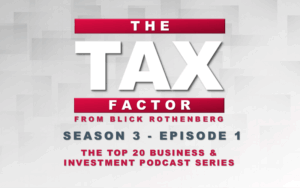Self’s assessment: Reforms to APR
Heather Self examines tax issues that have made the headlines in the national media
How feasible is the introduction of a new wealth tax?
It seems such a good idea: a small rate of tax charged on the assets of the very wealthy, to raise a significant sum of money to help fill the hole in Rachel Reeves’ tax bucket. Richard Burgon MP certainly thinks so – he recently delivered a petition with 80,000 signatures to Downing Street, calling for an annual 2% wealth tax on assets over £10m, which he claims could raise an estimated £24bn a year. The proposal has apparently been made by ‘leading tax experts’ and is supported by 75% of the population.
The level of public support is, perhaps, surprisingly low, given that almost everybody is likely to support a tax that they will not have to pay. In fact, Tax Justice UK, which originally set out this proposal in March 2023, calculate that only 0.04% of the population would pay it (‘Six wealth tax policies that could raise £50 billion’ on taxjustice.uk). But would a wealth tax actually work in the UK, and would it raise anything like the sums that are being mentioned?
Back in 2020, the Wealth Tax Commission was formed and carried out detailed academic research on the potential for a wealth tax (www.ukwealth.tax [ukwealth.tax]). Its final report (A wealth tax for the UK (Arun Advani, Emma Chamberlain and Andy Summers), December 2020) concluded that a one-off tax would be a better option than an annual wealth tax. Their estimate for the revenue from a one-off tax at 5% on assets over £10bn was £43bn (Table ES.1, page 9), suggesting that a 2% tax would raise around £17bn – somewhat lower than Richard Burgon’s estimate of £24bn, although still a significant sum. The Commission’s preference for a one-off tax rather than an annual tax was partly on the grounds of complexity, but also that an annual tax is likely to produce significant behavioural effects: if you are a very wealthy individual who is hit by a one-off tax, this is less likely to make you want to leave the country than the expectation that you will have to pay a wealth tax every year. And, of course, those who are extremely wealthy have the means to uproot their lives and move to a jurisdiction with a lower tax burden.
The Wealth Tax Commission’s proposals were thoroughly researched and the implications for design were considered in commendable detail. But the only result so far has been an increase in the number of calls for an annual wealth tax, with varying projections of how much revenue could be raised. One practical issue, addressed by the Wealth Tax Commission but not, as far as I am aware, by other proposals, is the question of how long it would take to implement a wealth tax and bring in the sums projected. Firstly, before a wealth tax could be announced, detailed work would need to be carried out on the key principles to be applied to the tax. As the Wealth Tax Commission pointed out, in order to reduce avoidance, you would want the tax to apply to transactions after the date of announcement, so would need to be able to explain, at least in broad terms, how the tax would work as soon as it is announced.
Announcing a wealth tax at Budget 2025 would be a demanding target, unless there is already detailed work being carried out on its design. Even if that is possible, there would have to be some consultation on the detail, and taxpayers would need time to value their assets.
This means that announcing a wealth tax at Budget 2025 would be a demanding target, unless there is already detailed work being carried out on its design. But even if that is possible, there would have to be some consultation on the detail, and taxpayers would need time to value their assets. I would have thought it unlikely that money would actually be collected before 2028, which is getting close to the end of the current Parliament’s life.
So the amount which could be raised from a wealth tax is uncertain, and an annual tax would result in potentially large changes in behaviour and would not raise money nearly as quickly as is being assumed. Delving more deeply into Richard Burgon’s proposals, the think tank Tax Policy Associates (TPA), run by Dan Neidle, is thoroughly unconvinced that an annual wealth tax is a good idea. Their report Wealth taxes: high risk, unworkable and anti-growth (22 July 2025) raises a number of fundamental difficulties with the proposals.
Firstly, a wealth tax is likely to damage growth. TPA cites a number of studies, particularly from the US and Germany, showing that a wealth tax could reduce GDP by 2% and have a large negative effect on employment. Second, a wealth tax is fragile: at the level being proposed (assets over £10m) 80% of the potential yield comes from a mere 5,000 people, so if a relatively small number of those affected decided to leave the UK, the yield would quickly fall. TPA also highlights the complexity and likely delay before implementation; in fact, they suggest that it would be 2029 before significant receipts came in.
Finally, we should remember that the UK does already have taxes on wealth; they are just not labelled as a ‘wealth tax’. In particular, capital gains tax and inheritance tax both apply a tax charge to those with higher levels of assets, but both could be made more effective. For example, the IFS set out proposals to reform capital gains tax last year (IFS Green Budget 2024). But TPA suggests that the priority should be land tax reform, saying ‘taxing land effectively would be both more efficient and fairer than taxing all wealth.’
However, a land tax would affect far more than the small number of people who have assets of more than £10m, and would inevitably be less popular. There are no easy answers: as we have seen from issues such as the Poll Tax to the so-called Farm Tax, everyone would prefer someone else to pay more tax rather than actually having to pay it themselves. As an old American saying goes, ‘don’t tax you, don’t tax me, tax that man behind the tree’.
Would you like to know more?
If you would like to discuss any of the above, please speak to your usual Blick Rothenberg contact or Heather Self using the form below.
This article was originally published in the Tax Journal and is reproduced with kind permission
Contact Heather

You may also be interested in

Self’s assessment: Reforms to APR

Self’s assessment: Business Tax Roadmap













